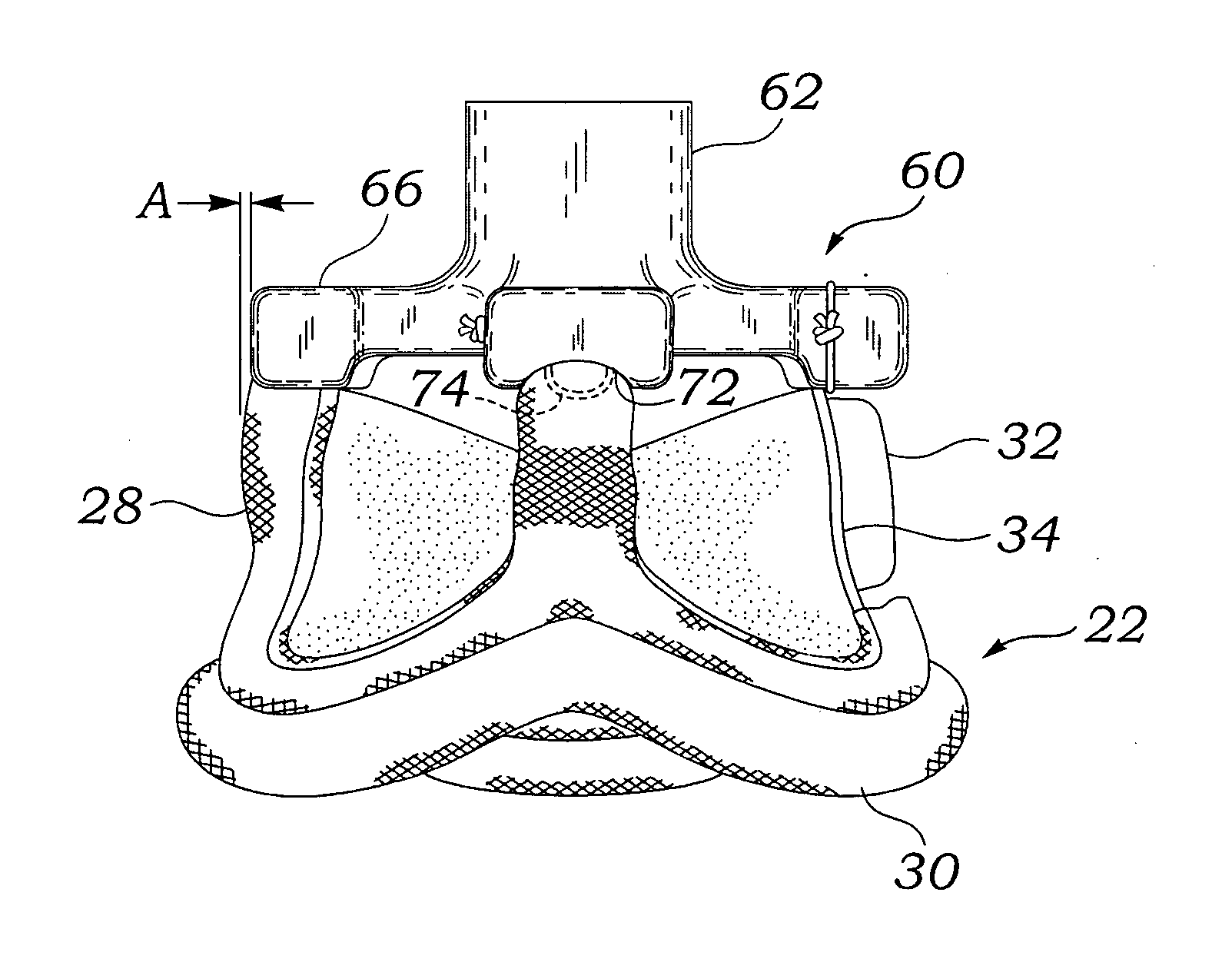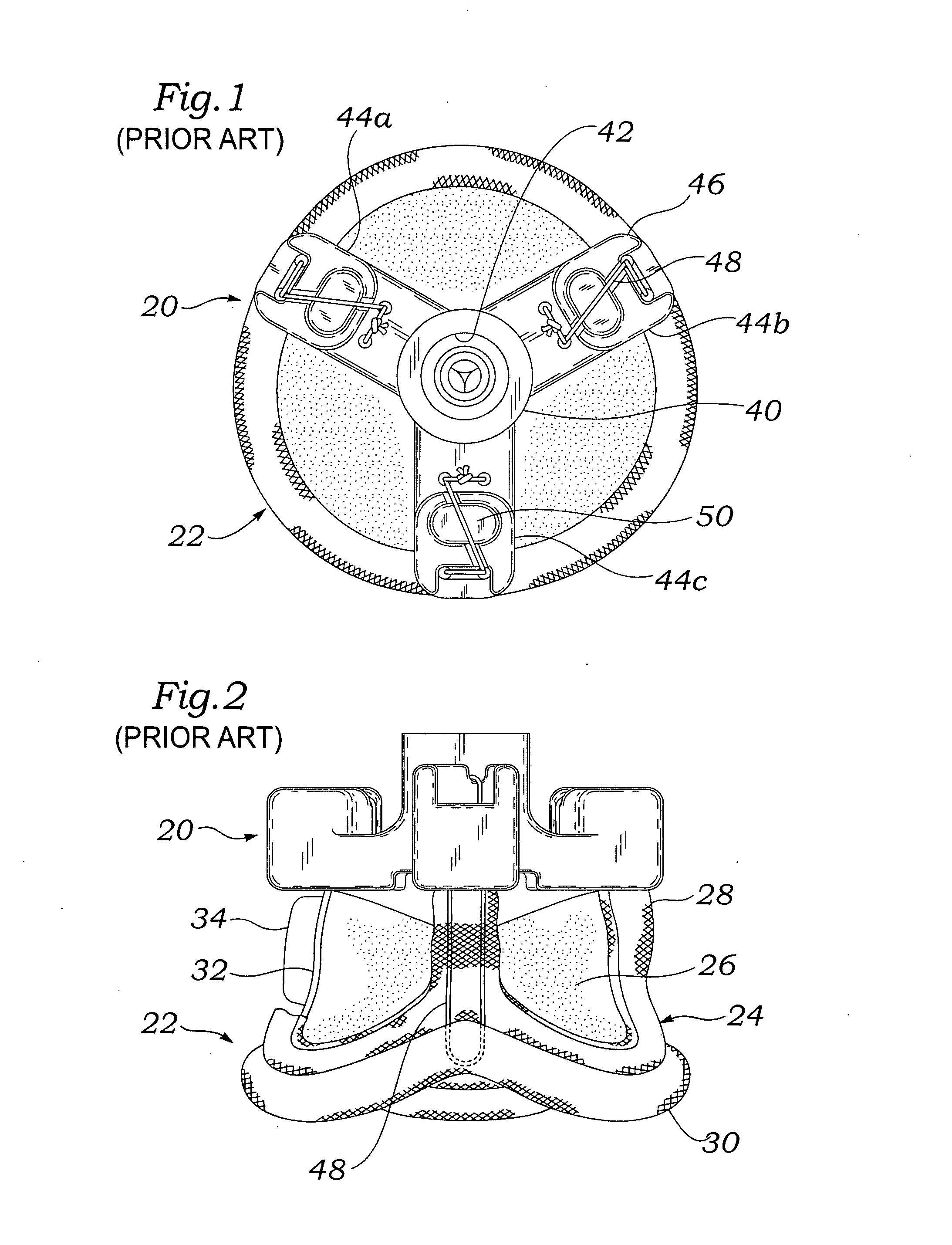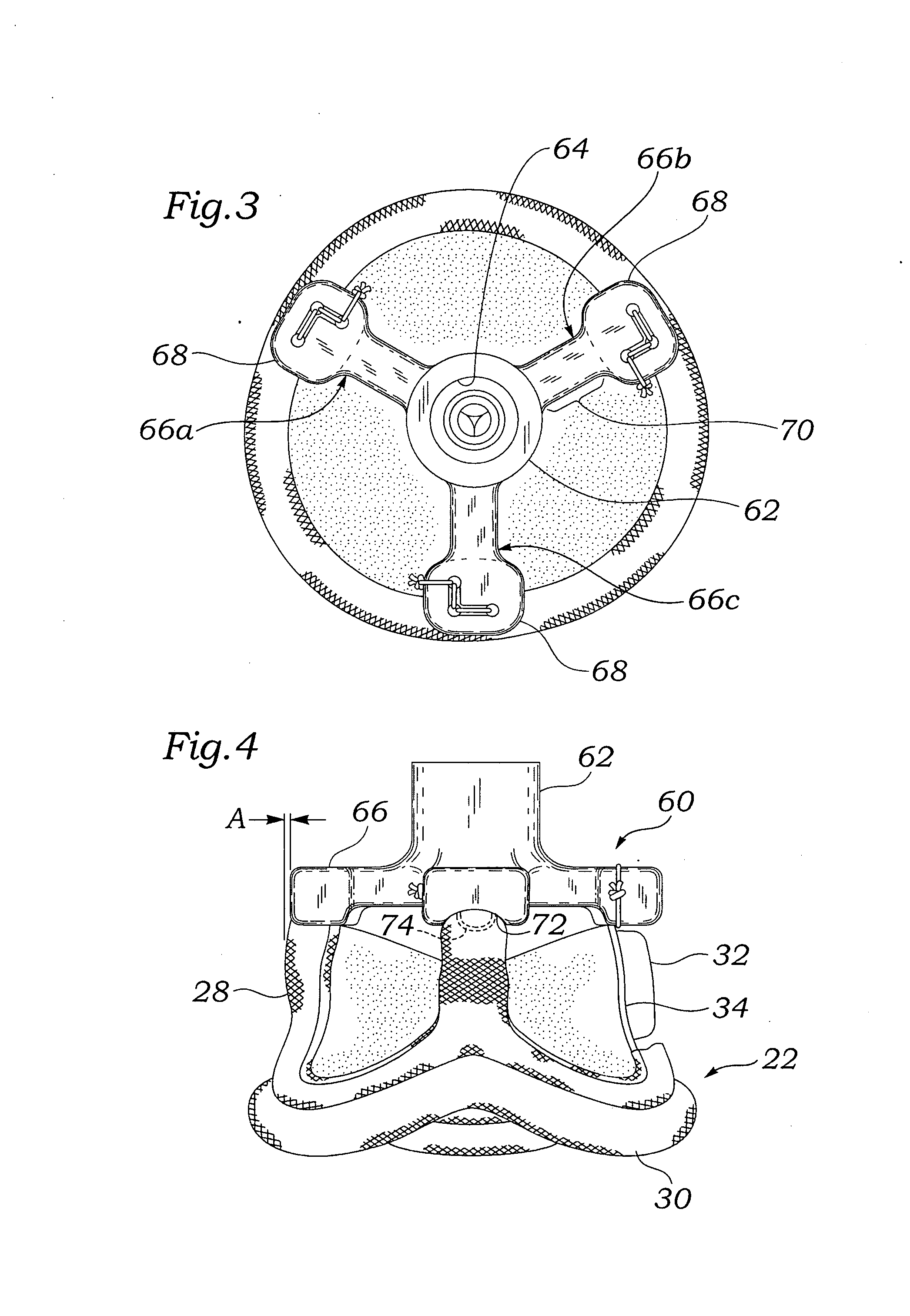Holders for prosthetic aortic heart valves
a prosthetic aortic heart valve and a technology for aortic valves, applied in the field of medical devices, can solve the problems of increasing the potential for puncture of one leaflet or improper suturing, precious little space, and difficulty in suturing the sewing ring to surrounding tissue, so as to facilitate valve implantation and reduce the effect of bulkyness and reduced shap
- Summary
- Abstract
- Description
- Claims
- Application Information
AI Technical Summary
Benefits of technology
Problems solved by technology
Method used
Image
Examples
Embodiment Construction
[0024] The present invention provides an improved holder for prosthetic aortic heart valves, in particular flexible leaflet valves. It should be understood, however, that certain features of the holder of the present invention are equally applicable to delivering prosthetic aortic heart valves that have rigid leaflets. Namely, the holders of the present invention attach only to the commissure tips of the valve and provide enhanced visibility of the leaflets and outer extent of the valve, especially the peripheral sewing ring on the inflow end. Such an advantage may also be desirable when implanting mechanical valves.
[0025] Is important to review modifications made to an existing aortic valve holder to fully understand the benefits of the present invention. FIGS. 1 and 2 show an existing holder 20 of the prior art attached to the outflow end of a prosthetic aortic valve 22. There are many designs for prosthetic aortic valves in the art, the one shown being the Carpentier-Edwards PER...
PUM
 Login to View More
Login to View More Abstract
Description
Claims
Application Information
 Login to View More
Login to View More - R&D
- Intellectual Property
- Life Sciences
- Materials
- Tech Scout
- Unparalleled Data Quality
- Higher Quality Content
- 60% Fewer Hallucinations
Browse by: Latest US Patents, China's latest patents, Technical Efficacy Thesaurus, Application Domain, Technology Topic, Popular Technical Reports.
© 2025 PatSnap. All rights reserved.Legal|Privacy policy|Modern Slavery Act Transparency Statement|Sitemap|About US| Contact US: help@patsnap.com



